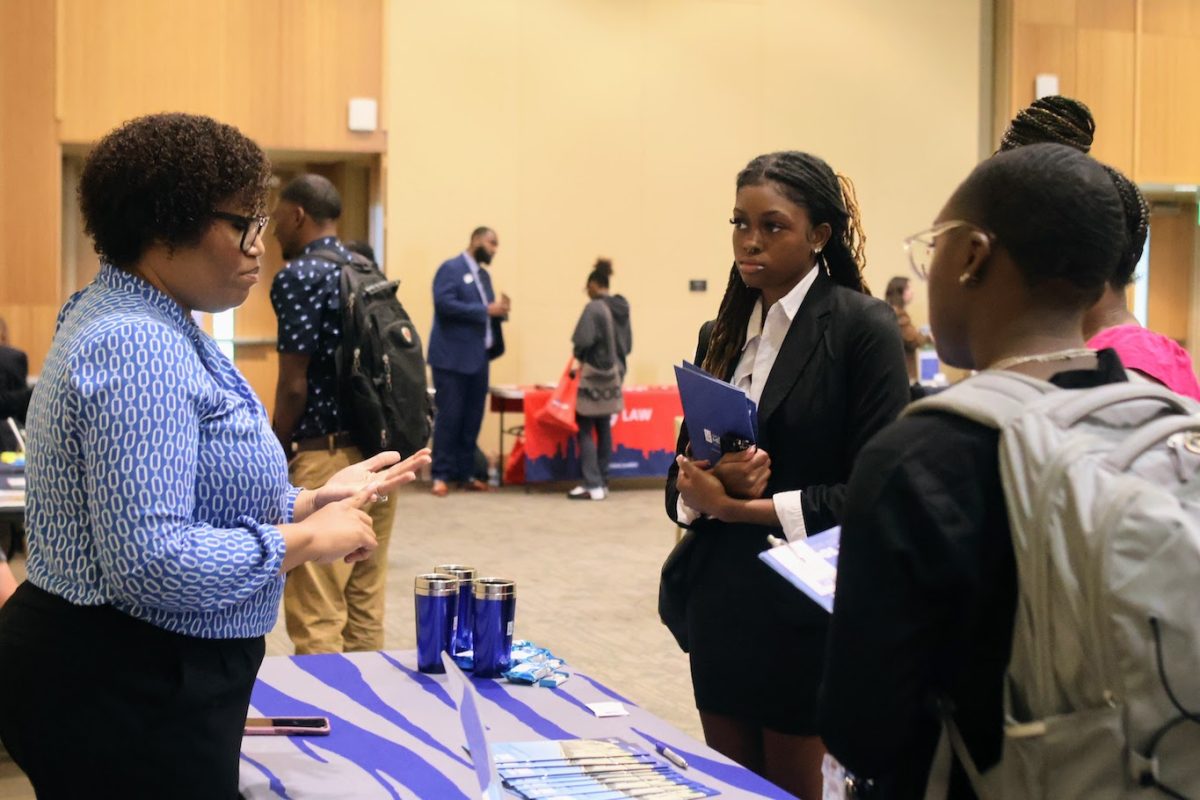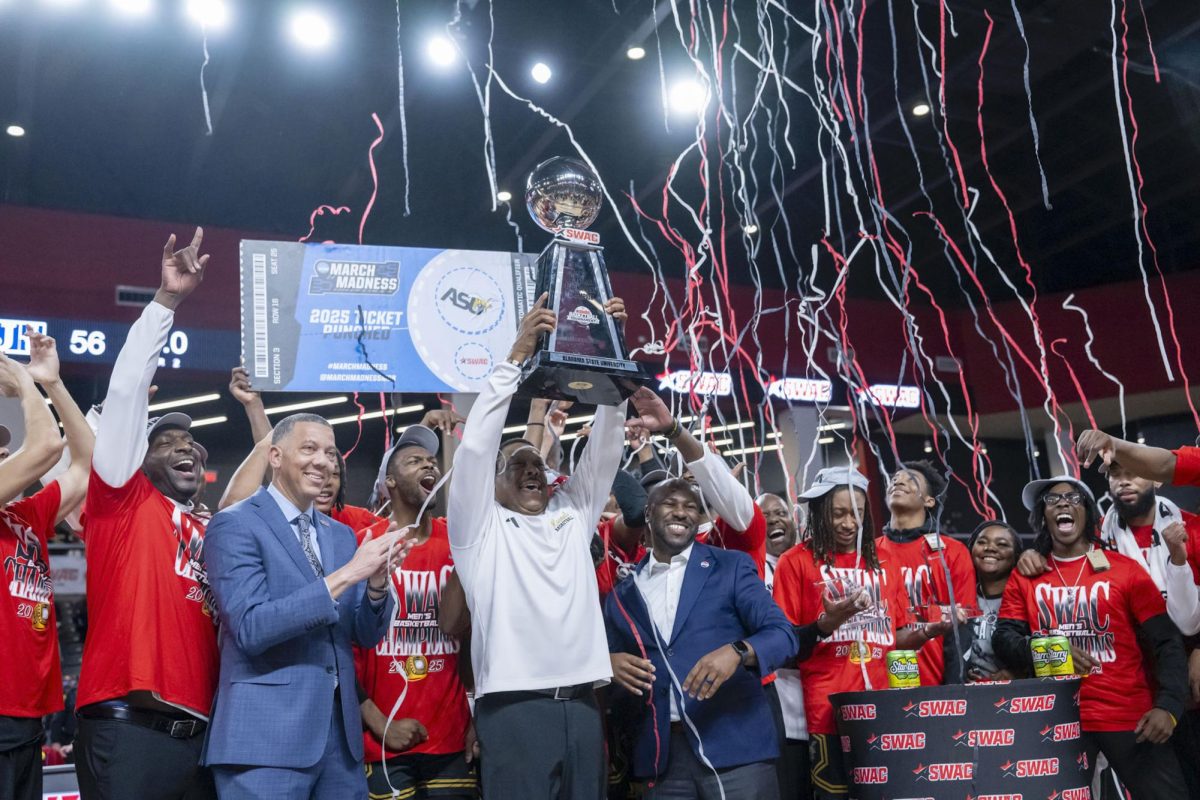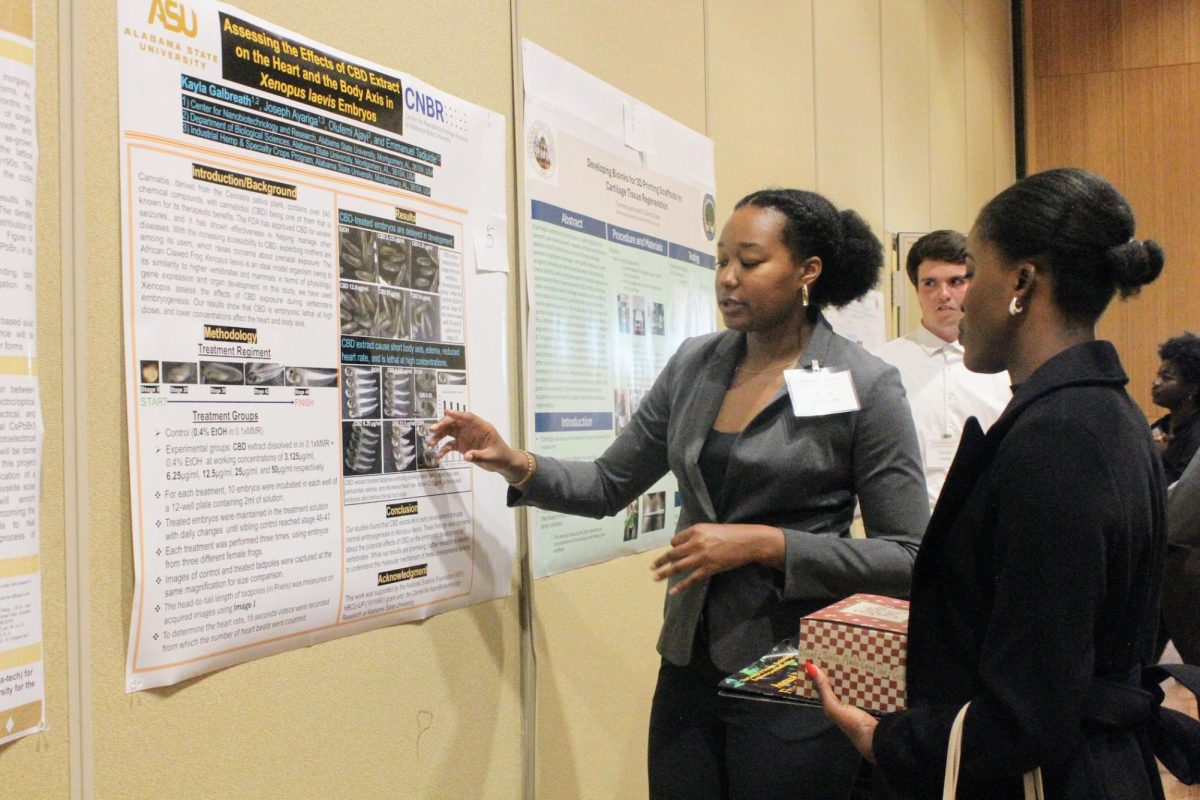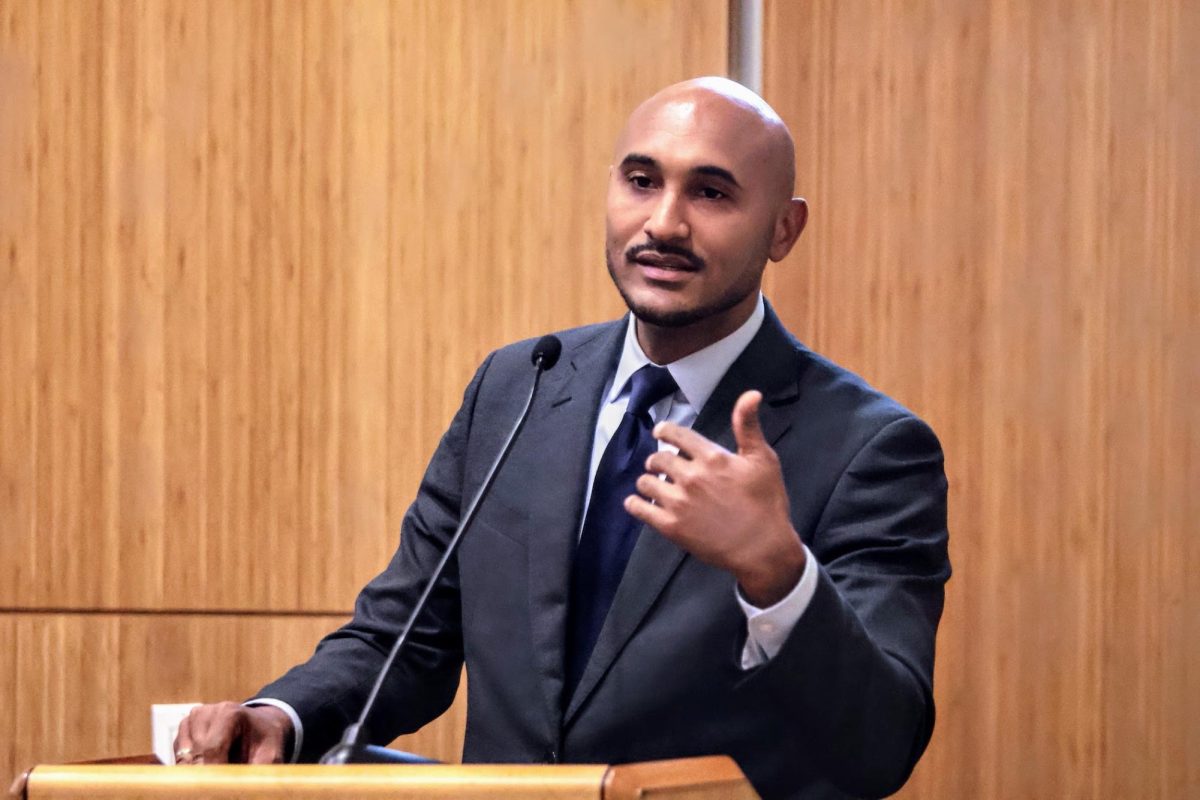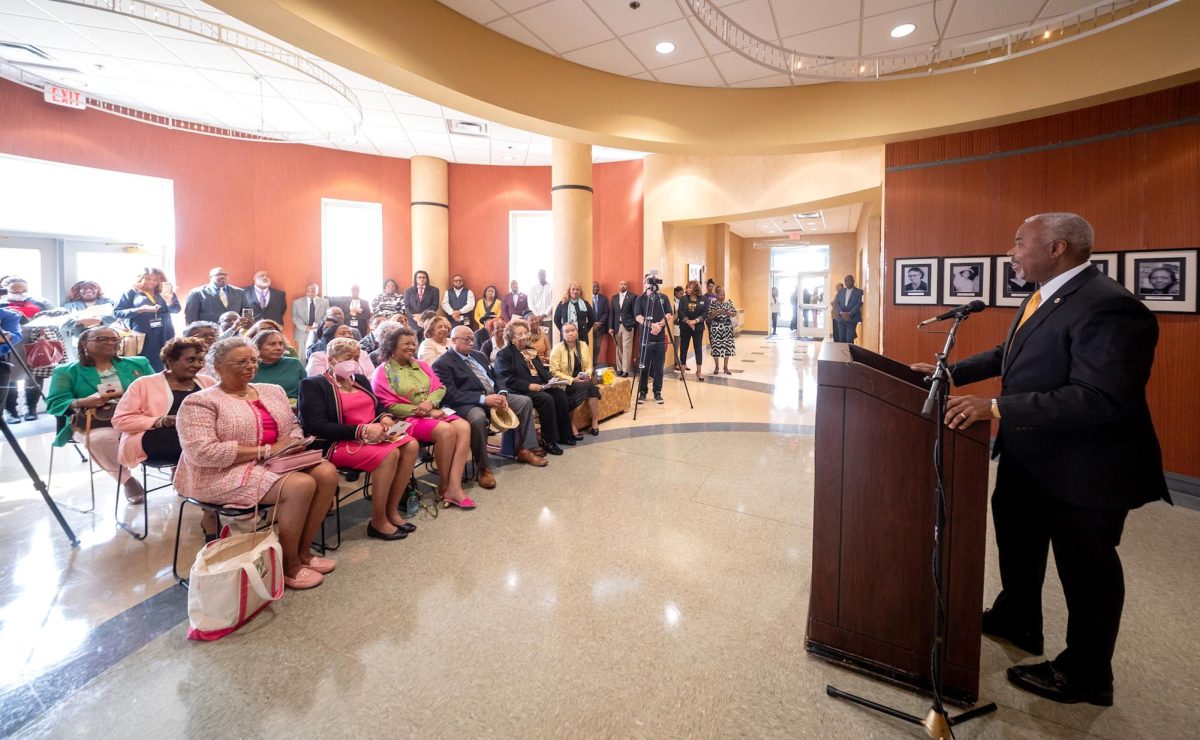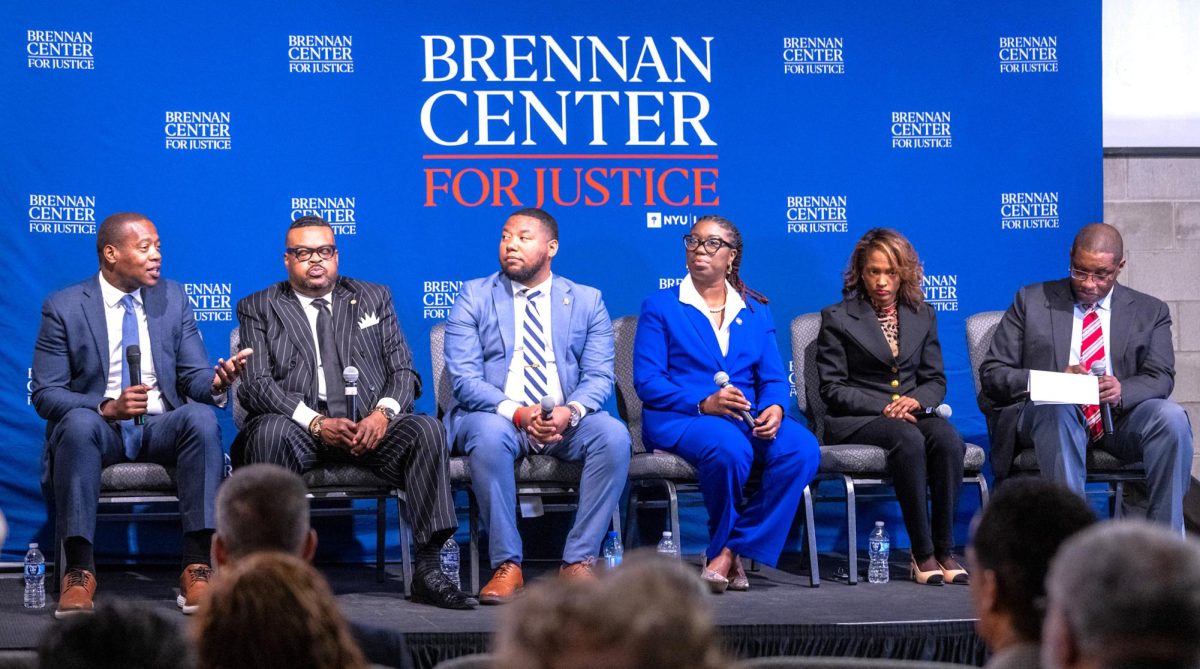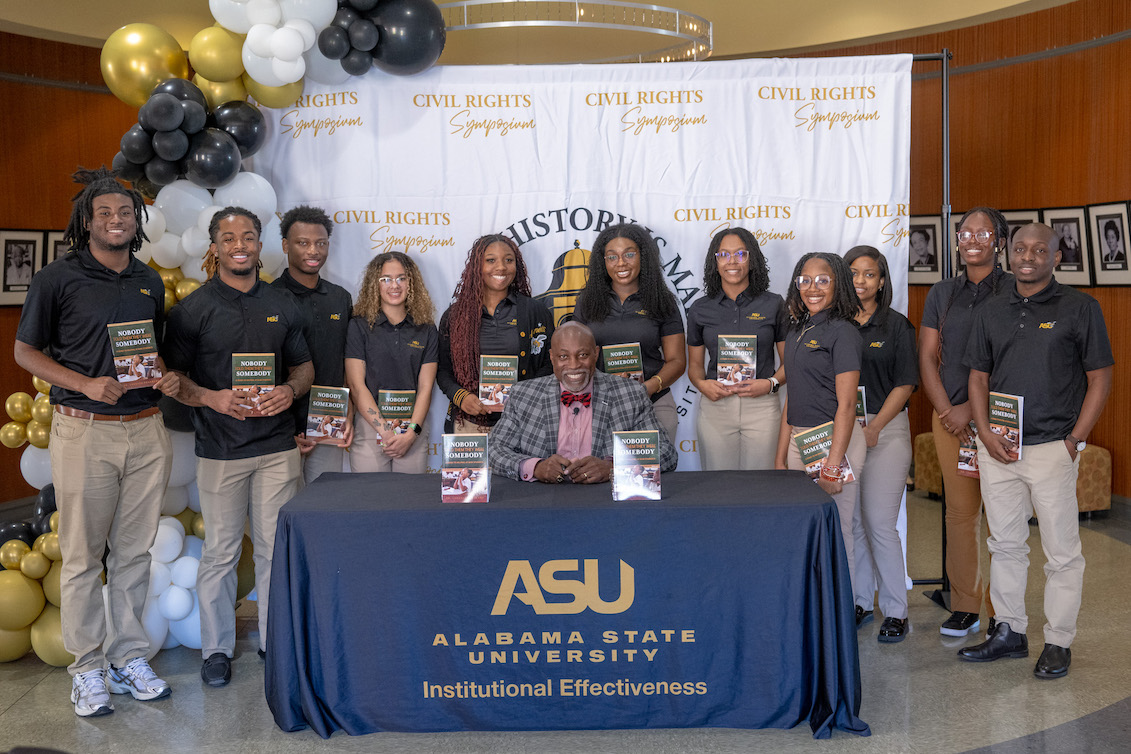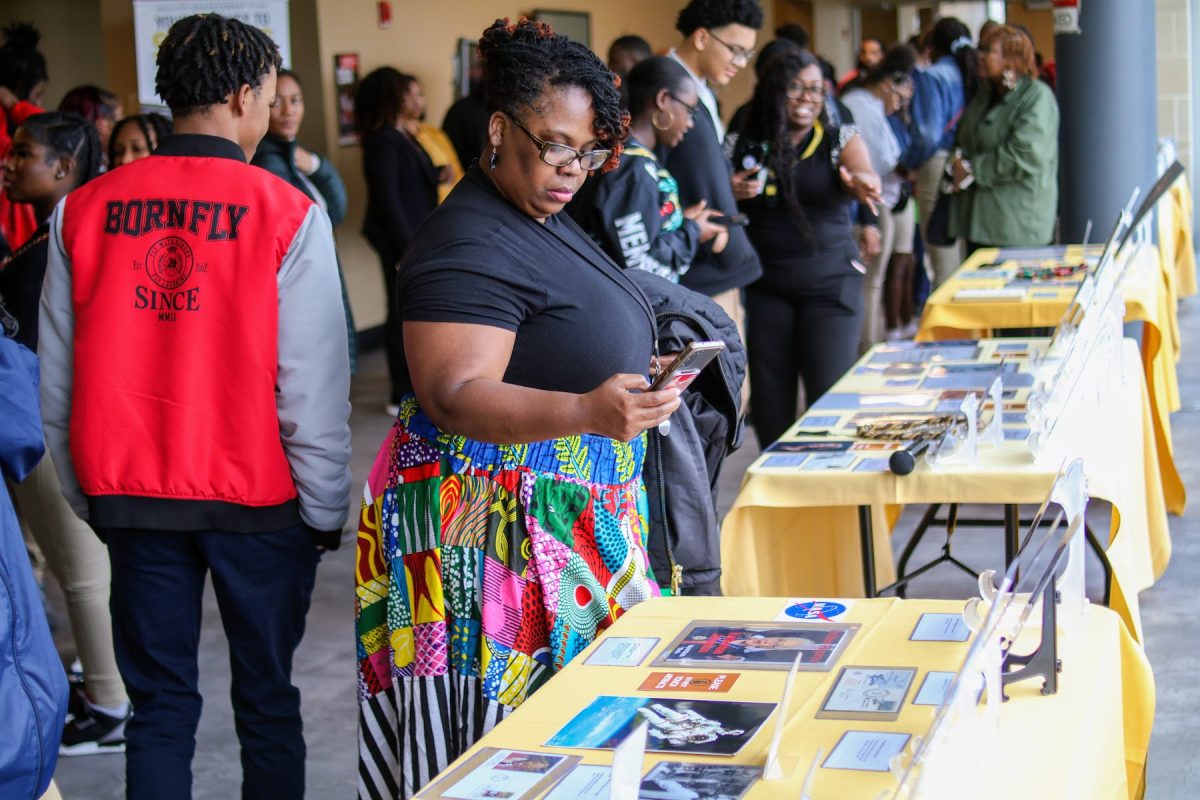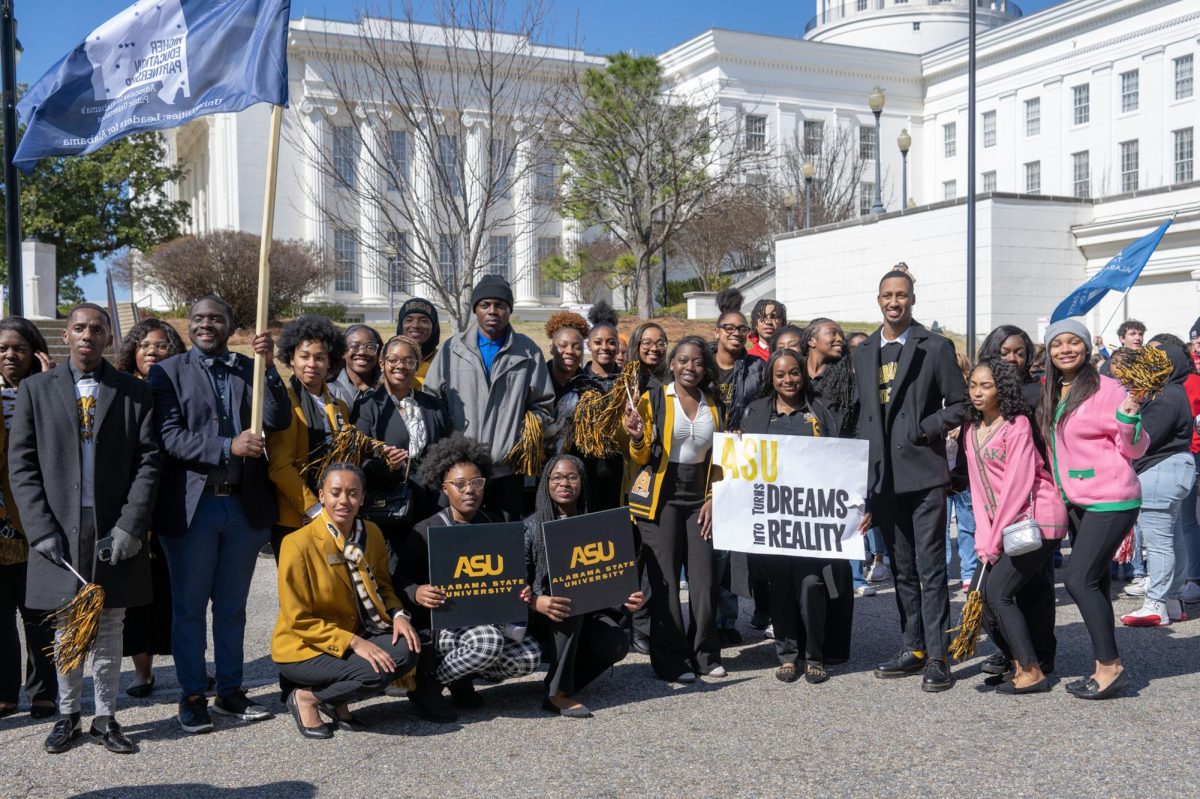Alabama State University Office of Career Services presents Law Forum Tuesday, Sept. 10 in the John Garrick Hardy Center Ballroom for students who are interested in attending law school after graduation.
The Law Forum event featured Katya Valasek, a law school admissions council (LSAC) representative who spoke using the Zoom platform, and the Office of Career Services Coordinator Candice Stinchcomb, who hosted the event for Alabama State University.
The Law Forum provided an opportunity for students to talk to representatives from seven different law schools and broke down the Law School Admission Test (LSAT) for law students.
The schools represented were Lousiana State University, Paul M. Herbert Law Center, the University of Notre Dame, Samford University Cumberland School of Law, the University of Alabama, the University of Illinois Chicago School of Law, the University of Mississippi School of Law and Charleston School of Law.
Valasek gave basic information about the LSAT.
“The LSAT promotes fairness in the law school admission process. It also mirrors the one-law experience and helps in transitioning to a new learning environment. Preparing for the LSAT helps prepare for a career in law.
She explained how the LSAT is a critical thinking test, not a knowledge test.
“Anyone can take the test and do well, regardless of background or major, but you have to practice for this exam; you can not just cram for it,” Valasek explained. “There are no tricks or secrets to answering the LSAT test questions correctly. Questions are reviewed by a diverse team of test developers and external experts. The results of the LSAT are assessed for validity and reliability. The LSAT is the only admission test accepted by all law schools accredited by the ABA.”
After explaining the basics of the LSAT testing, Valasek explained the methodology for scoring.
“The LSAT testing has continued to be reported on the standard 120-180 LSAT range, along with percentile ranking,” Valasek said. “Based on the number of questions you answered correctly, raw score is converted to an LSAT scale to make it easier to compare scores earned across different LSAT administrations. All test questions are weighted the same, with no deductions for incorrect answers, and the LSAT score preview is available to all tests.”
Shortly after, Valasek presented the students from the university with the LSAT format, content and reading comprehension.
“Three multiple-choice sections are being scored, and each section is 35 minutes long,” she said. “During this test, you will take reading comprehension, two logical reasoning tests and a writing sample. One unscored multiple-choice section is 35 minutes, and one unscored writing sample. In between sections two and three, there is a 10-minute break.”
She continued.
“LSAT questions are designed to test reading skills involving complex texts that involve intricate arguments. You will have to read one complex passage or two related passages that are comparative reading. There are 450-500 words in total, five to eight questions, and four reading comprehension sets per test section. On the LSAT, there are a variety of topics such as humanities, natural science, social science and law-related.”
The last presentation was about the LSAT score preview LawHub and other resources that are out there.
“For any students who wants to take the LSAT, the test is available for all test takers; it is $45 if purchased before the first day of test administration and $80 if purchased after you have taken the test,” she said. “You have six days from score release to decide. The LSAT can be purchased through your LSAC account, and the cost is included with an LSAC fee waiver.”
She also informed students about the LawHub, a free LawHub account. The LawHub account provides four free practice tests plus LSAT writing.
“With LawHub, you can practice with the authentic test interface in self-paced and simulated exam modes. There is instant scoring feedback that enables you to assess strengths and improve performance,” Valasek said.
“There are many features for you all to access, such as access to explore content, access to admission unmasked, access to prelaw success live events, access to personal reports through law school transparency, and I Am The Low Podcast,” said Valasek.
The other LawHub advantage is $120 a year, and everything is included with the free account. Such as an extensive library of official LSAT prep tests, two additional LSAT argumentative writing prompts and additional tests that work with the curriculum of any application status tracker.
“You can also use your account to conveniently and securely track the status of your law school applications and ultimate law school prep,” said Valasek.
Overall, students who attended the Law Forum found it to be very useful and an educational event.
Charlie Wade, a sophomore majoring in criminal justice, feels like the Law Forum event was very helpful.
“The Law Forum event was very resourceful,” Wade said. “As a sophomore wanting to go to law school but not knowing what exactly I wanted to do, it gave me insights and tips to use when I want to take the test.”
Zayni Jones, a junior majoring in health information systems, agreed.
“The LSAT test was very informative,” Jones said. “She showed us the LSAT score preview and how law students can practice for the LSAT. There were also many different law schools at the university, such as Samford University, the University of Alabama, and the University In Chicago.”
Another student by the name of Yasmine Martin, a sophomore majoring in criminal justice, was excited about the other law schools that were represented.
“The Law Forum event was good,” she said. “I got a chance to speak to the University of Alabama because I am interested in going there for law school. I was so happy to see the University of Alabama at the university, but I am just exploring my options and learning a lot.”
Talyn Brown is a sophomore majoring in criminal justice, thought that the law forum was very helpful in terms of preparing students and informing them of what is to come for the law school admissions process.
“The presentation at the beginning of the forum was really helpful. There was an LSAT expert who took the time to get into all things pertaining to the test,” Brown said. “I was fortunate to have been able to visit each representative. All the representatives gave me tips on my future application, enlightened me on career openings, and even shared some words of encouragement as I navigated through my collegiate journey.”
Categories:
Legal aspirants attend Career Fair’s Law Forum
Phyllis Turnipseed, Senior Staff Reporter/Writer
September 14, 2024
Various law school representatives from the various institutions that were represented at the law forum explained the requirements to students about admittance.
Story continues below advertisement
0
More to Discover


